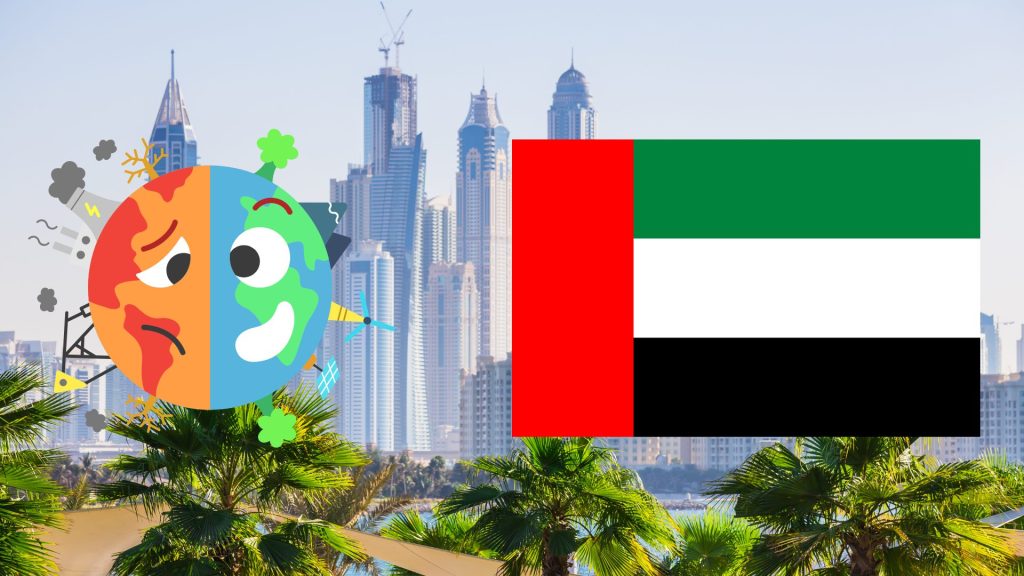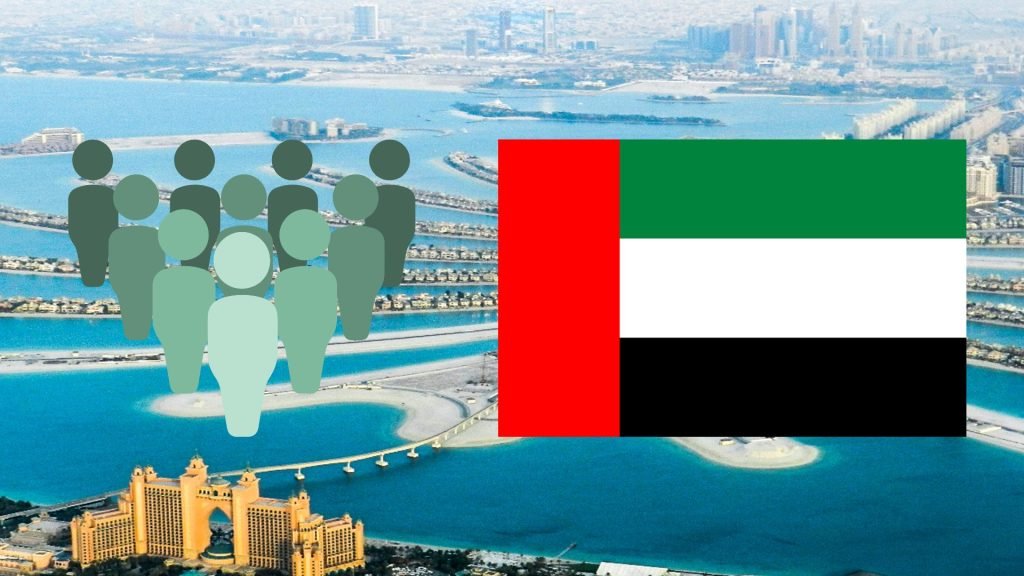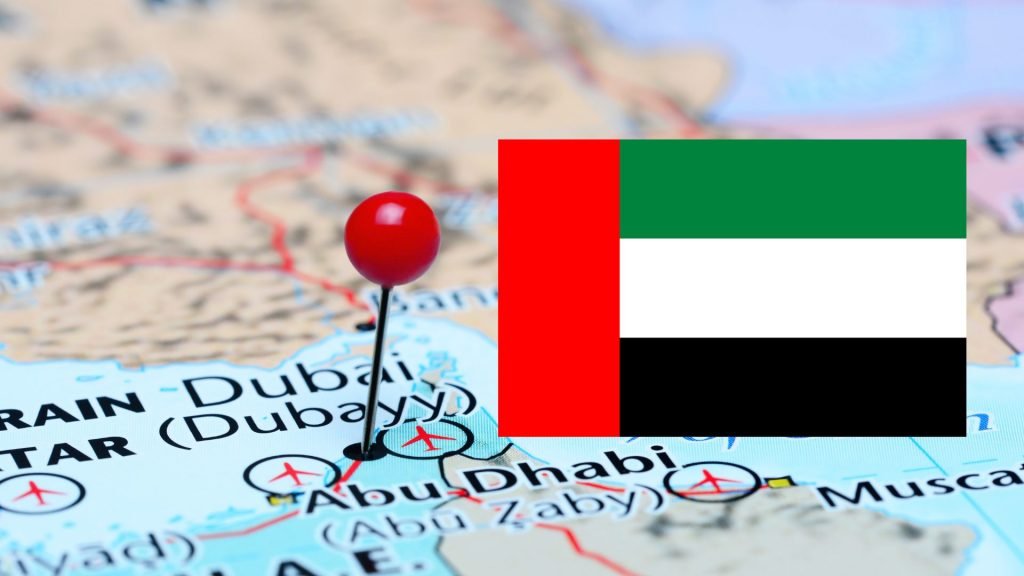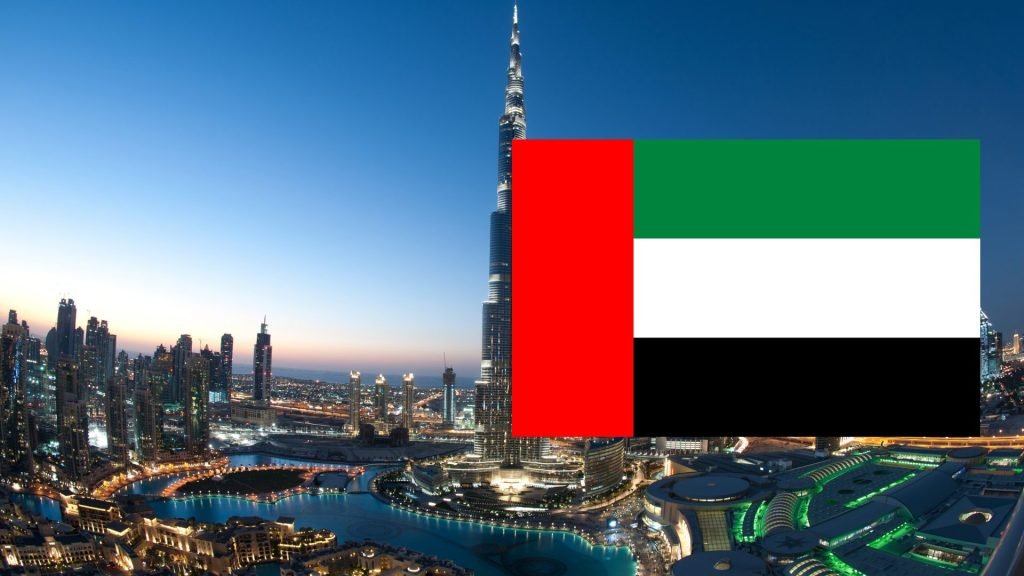Are you curious about the climate in Dubai? When you’re considering moving to Dubai or want to go on a nice holiday to Dubai, it’s important to prepare well for the rather extreme climate in Dubai.
Dubai has an extreme climate that differs enormously from that in the Netherlands or Belgium. For expats who want to settle in Dubai, the climate plays an important role in daily life, housing choice, and overall health.
On this page, we’ll tell you everything you need to know about the climate in Dubai.

The General Climate of Dubai
What kind of climate does Dubai have? Dubai has a subtropical desert climate. This can be characterized by extremely hot summers and fairly mild winters.
What is the temperature in Dubai? Annually, the temperature varies from about 12 °C on the coolest nights in January to up to 45 °C on the hottest summer days in August. The humidity is often high, especially in summer, which can make it feel very stuffy.
How much rain falls in Dubai? On average, only 150 mm of rain falls per year, mainly between December and March. In summer, rain is practically non-existent.
Although Dubai is located in the middle of a desert area, the humidity is surprisingly high for a large part of the year. This is because moist sea winds from the Persian Gulf move inland. Especially in the summer months, the humidity can rise above 90%, which makes the perceived temperature much higher than the actual temperature.
Seasons in Dubai
Summer (may – September)
That Dubai has a subtropical desert climate is especially noticeable in summer. Summer in Dubai is long and intense. How hot is it in Dubai in summer? Between mid-May and late September, daytime temperatures average above 40 °C, with peaks up to 49 °C.
The combination of heat and humidity makes staying outdoors during the day in the sun nearly impossible. July and August are the hottest months of the year, with nighttime temperatures barely dropping below 30 °C.
The humidity then often reaches more than 90%, leading to a ‘muggy’ feeling, according to data from Weather Spark.
In Dubai, you have long periods of sunshine. Sunshine hours remain high (averaging 10.5 hours per day), but this doesn’t mean it’s pleasant outside. Without air conditioning, comfortable living is virtually impossible. So be sure when you’re going to rent a house in Dubai or buy a house in Dubai that you ensure there is air conditioning present. Otherwise, it’s simply not manageable.
Many local residents and expats plan their vacations during this period to escape the unbearable heat in Dubai. Expats, for example, often return to the Netherlands for a slightly milder summer.
Winter (November – March)
Because Dubai has a subtropical desert climate and thus mild winters, the winters are actually extremely attractive in Dubai.
Winter is the favorite time of year for residents and tourists. The temperatures are pleasant in Dubai then and vary from 18 °C to 30 °C during the day. In January, the coldest month, temperatures sometimes drop to around 12 °C at night, but that’s exceptional. The air is usually clear, with an average of 8 hours of sunshine per day and lower humidity.
Rain in Dubai is limited in winter, but concentrated in short, heavy showers. February is on average the wettest month with about 25 mm of precipitation. Heavy downpours can lead to temporary flooding, as the city has insufficient drainage. Nevertheless, most of the winter remains dry and sunny.
Transition Months (April, October)
April and October are transition months, during which temperatures in Dubai change rapidly. In April, it can already reach 40 °C, while October cools down to more pleasant values of on average 30 – 35 °C.
These months are variable: some days are relatively cool and suitable for outdoor activities, other days are stuffy and oppressive.
In April, there is a chance of sporadic rainfall and sometimes fairly extreme rain, such as that of April 2024 when 130 mm of precipitation fell in one day (normally 150 mm falls in a year) – exceptional for this region.
How Does the Climate Affect your Daily Life?
The climate in Dubai is quite extreme, so you have to adapt your life to it. Living in Dubai means adjusting your daily routine to the climate. In summer, many activities shift to early morning or late evening. Shopping, walking, or exercising usually happens before 10 AM or after sunset when it’s slightly cooler.
For children, this means that outdoor playtime is quite limited and schools are often fully air-conditioned. Many playgrounds are covered or located inside shopping malls. The climate forces residents to stay indoors during the hottest part of the day, often between 12:00 and 17:00.
Additionally, it’s not uncommon for work life to be adjusted accordingly. Companies sometimes adopt flexible working hours or longer lunch breaks during the hottest months.
Health and Well-being in Dubai’s Climate
The climate in Dubai can be quite taxing on your body, especially when you’ve just arrived. The main risks are dehydration, heat stroke, and sunstroke. Drinking plenty of water is absolutely necessary, as is wearing a hat, sunglasses, and sunscreen with high SPF.
Air conditioning is absolutely essential in Dubai due to the high temperatures and humidity. In virtually every building, from homes and offices to shopping malls and taxis, the air conditioning runs constantly. However, excessive use of air conditioning also has disadvantages. It can cause cold symptoms, dry skin, or irritated airways – especially when you regularly move from the warm, humid outside air to a strongly cooled space and back again. The body struggles to adapt to these temperature changes each time, which can cause discomfort.
A humidifier indoors can help reduce complaints. Also, be mindful of temperature fluctuations between inside and outside: the difference can be up to 20 °C. It’s best not to set your air conditioning too low, to make the difference less drastic.
For people with cardiovascular diseases or respiratory problems, it’s advisable to have a medical check-up beforehand and consult their doctor about living in this extreme climate.
Clothing Advice for Expats
Light, breathable clothing made of cotton or linen is a must. In summer, it’s best to choose light-colored, loose-fitting clothes that cover your skin as much as possible from the sun. Avoid synthetic fabrics that trap heat.
Additionally, it’s important to consider local norms. For women, it’s appropriate to cover shoulders and knees in public spaces, although rules in expat-friendly neighborhoods and shopping malls are generally more relaxed.




